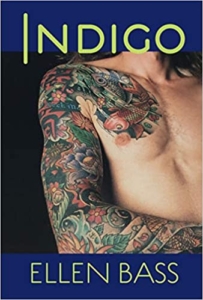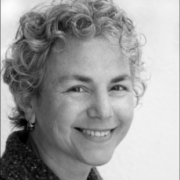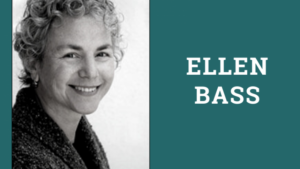Ellen Bass: INDIGO
Oh, my. I have been a fan of Ellen Bass for decades. And now this gorgeous, gob-smacking book. Ellen Bass’s  Indigo (Copper Canyon, 2020), makes me want to take the mewling newborn sheaf of poems I’m calling a manuscript and dump them in the shredder. I’ll just start over.
Indigo (Copper Canyon, 2020), makes me want to take the mewling newborn sheaf of poems I’m calling a manuscript and dump them in the shredder. I’ll just start over.
She has a poem for that feeling—in the title poem, “Indigo”: “I can’t stop wishing” she writes, “I want,” “I want”:
I want to have married a man who wanted
to be in a body, who wanted to live in it so much
that he marked it up like a book, underlining,
highlighting, writing in the margins, I was here.
In this book, there’s a poem for every feeling you can imagine: despair, lust, fear, envy, love. Maybe it’s that Indigo offers a bouquet of the seven deadly sins, starting with gluttony (I’m thinking of “Sous-Chef,” the first poem, but a few pages later we get “Ode to the Pork Chop”: “the hiss and spit is / a lullaby that’s soothed Homo sapiens / since the discovery of fire”). It’s a cornucopia of delights, one of which is sex.
Except when she dishes up sheer terror: the illness of a spouse, the deaths of parents, the Holocaust.
So I don’t know what else I can do but share a poem. Having spent an inordinate amount of time these past several years writing about my mother, I’m choosing this one. My mom never worked in a liquor store, didn’t have a chronically ill husband, didn’t drink alcohol. But she did have me, memorizing her every move (taking sips of her coffee), taking notes as though I’d need them to become a woman.
Black Coffee
I didn’t know that when my mother died, her grave
would be dug in my body. And when I weaken,
she is here, dressing behind the closet door,
hooking up her long-line cotton bra,
then sliding the cups around to the front,
leaning over and harnessing each heavy breast,
setting the straps in the grooves on her shoulders,
reins for the journey. She’s slicking her lips with
Fire & Ice. She’s shoveling the car out of the snow.
How many pints of Four Roses did she slide
into exactly sized brown bags? How many cases
of Pabst Blue Ribbon did she sling onto the counter?
All the crumpled bills, steeped in the smells
of the lives who’d handled them—their sweat,
onions and grease, lumber and bleach—she opened
her palm and smoothed each one. Then
stacked them precisely, restoring order.
And at ten, after the change fund was counted,
the doors locked, she uncinched the girth, unbuckled
the bridle. She cooked Cream of Wheat for my father,
mixed a milkshake with Hershey’s syrup for me,
and poured herself a single highball,
placed on a yellow paper napkin.
Years later, when I needed the nightly
highball too, she gave me this story.
She’d left my father in the hospital—
this time they didn’t know if he’d live,
but she had to get back to the store. Halfway,
she stopped at a diner and ordered coffee.
She sat at the booth with her coat still on,
crying, silently, just the tears rolling down,
and the waitress never said a word,
just kept refilling her cup.—Ellen Bass
Ellen Bass is a rockstar, “a living legend,” in the words of Jericho Brown. Though I didn’t include her whole lineup of books, if you’re not already tuned in, you can find more about Ellen at her website here, or here.




 I remember once being told that you can’t write poems about the moon — it’s been done too often. But at Litfuse, when
I remember once being told that you can’t write poems about the moon — it’s been done too often. But at Litfuse, when  My introduction to poet Ellen Bass was courtesy of Garrison Keillor’s
My introduction to poet Ellen Bass was courtesy of Garrison Keillor’s